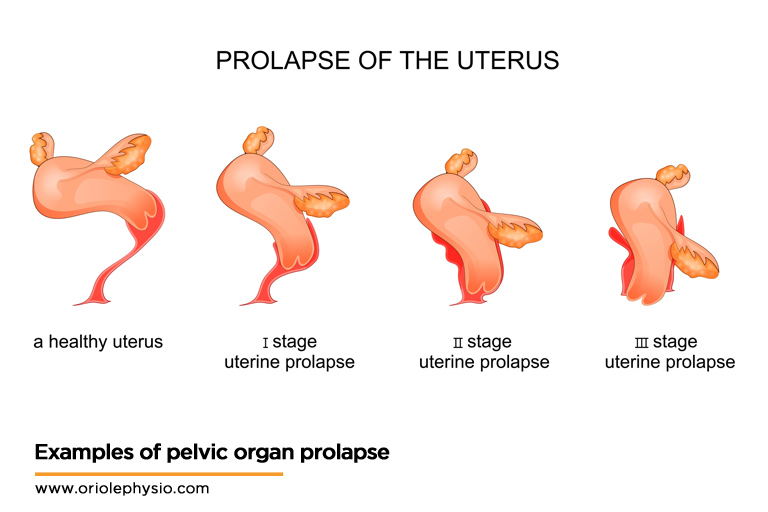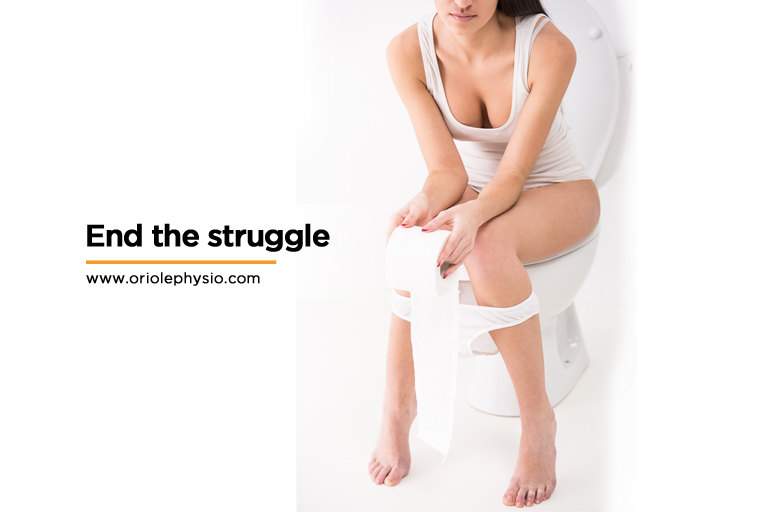Why Pelvic Floor Physiotherapy Helps New Moms
As a new mother, most of your time and energy may be directed towards caring for the newest member of your family. Though your personal health may seem a secondary concern, it is of paramount importance. Take time to schedule an appointment for a pelvic floor examination and physiotherapy to build strength and reduce postpartum pain.
What Happens to Your Pelvic Floor During Pregnancy?
The pelvic floor is composed of layers of tissue, muscles, and ligaments stretching from the pubic bone to the end of the spine. It holds up the bladder, bowel, and uterus. It also provides the channel through which the various connected openings (e.g. urethra, anus, and vagina) pass. The pelvic floor allows women to tighten these openings, providing control over the bladder and bowel.
Pregnancy puts a significant amount of stress on the pelvic floor from (as early as) the start of your second trimester. The strain of bearing extra weight stretches and weakens the surrounding muscles. In addition, your body produces additional hormones, which relax muscles and ligaments around the pelvic area to prepare for a growing baby and impending childbirth. Vaginal births (especially ones with the aid of forceps) can further stretch the muscles and may cause tearing.
How Does a Weakened Pelvic Floor Cause Problems?

- Pelvic Organ Prolapse
Pelvic organ prolapse is a condition where the loss or weakening of the structural support of pelvic organs causes them to drop into (or outside) the anus or vaginal canal. This can range from mild (only a short distance or prolapse) to severe (a more significant drop). This can lead to other physical problems.

- Pelvic Pain
Pelvic pain can manifest as shooting pain that can flare up (even when at rest) or dull aches. Affected parts can include the hip, groin, and pubic areas.
- Painful Sex
Low estrogen levels, scarring, and a weakened pelvic floor can make sex painful up to six months postpartum — or beyond.

- Incontinence
Many new moms joke about how they pee when they sneeze or laugh and accept it as a lifelong result of pregnancy. It doesn’t have to be like that. Urinary incontinence is a loss of bladder control resulting in unexpected leakage. This issue can be caused by an overactive bladder (due to weakened pelvic floor muscles), nerve damage, shifting of the bladder and urethra during pregnancy, or a cut made in the pelvic floor during delivery.
Severe injury to the pelvic floor can also affect the anal sphincter (which controls the release of feces or gas). Damage to this particular muscle can make it difficult for women to control the bowels.
Weakness in the pelvic floor is common after pregnancy. However, it is frequently temporary, with symptoms disappearing about a year after delivery. For those who continue to struggle with physical changes after childbirth or miscarriage, physiotherapy can make a huge difference. It builds strength and increases a patient’s knowledge about her own body.
Not all women experience symptoms of pelvic floor dysfunction. Nonetheless, it’s a good idea to have a professional assessment after you’ve given birth. Consult with a pelvic health specialist to determine what’s going on with your body. Even if you have no “negative” symptoms or physical challenges, you can benefit from some exercises and techniques to help your body recover from the changes of pregnancy.

How Does a Pelvic Floor Physiotherapist Help?
When a part of the body experiences nerve damage, muscle tearing, or undergoes surgery (because of a sports injury, for example), health care providers often recommend physical therapy as an important aspect of recovery. Pregnancy and delivery involves all of these concerns, but the recovery from these major physical changes are frequently ignored.
Seeing a pelvic floor physical therapist can provide new physical awareness. Physiotherapy has a number of benefits:
- A thorough assessment
New mothers are sometimes told to visit their primary medical care provider (e.g. OB-GYN or midwife) for postpartum check-ups. However, most assessments do not include evaluations of the pelvic floor. The lack of a thorough checkup can prove to be detrimental; any pelvic floor issues fly under the radar. Without knowledge of our pelvic health, many women may think it’s okay to perform certain activities (like exercise) that our bodies are not ready to undertake.
A pelvic floor physiotherapist is an expert in postpartum recovery. A professional can perform an extensive examination (externally and internally) to identify underlying problems and provide appropriate strategies to manage them.
- Treat symptoms and prevent further issues
Pelvic floor weakness is a serious issue that needs to be addressed by professional health care providers. It should not be regarded as an “inevitable consequence of pregnancy.” Pain is not something you have to live with.
Talk to your doctor about any discomfort you experience postpartum, and get a referral to a physical therapist who specializes in pelvic floor rehabilitation. Physiotherapists can help identify pelvic floor dysfunction (whether it is related to weakened muscles or not). They can also intercept problems and help you avoid future issues.
- Exercise and perform daily activities without setbacks
The pelvic floor supports several parts of the body’s core, which is needed for many everyday tasks, from household chores (like lifting a laundry basket) to strength training at the gym (like weightlifting). Without the proper care, new moms may experience pain and/or injure themselves if they attempt strenuous activities they were used to performing prior to pregnancy.
A physiotherapist can determine what a body is capable of, and recommend strategies and exercises to promote healing and strengthening of the pelvic floor (along with the rest of the body). Eventually, new moms can return to the activities they enjoy after childbirth.
- Receive a full-course treatment
Though many online resources point to kegel exercises as a “surefire” way to deal with pelvic floor issues, postpartum recovery often requires more than just kegels. In fact, doing this exercise may be detrimental if not done with expert guidance. A “DIY” approach to pelvic health may particularly aggravate issues in women with a tight pelvic floor.
A physical therapist can ascertain whether kegels are appropriate for you (or which types of kegel exercise can be introduced at various stages of strength building). They can also offer various types of treatment (e.g manual therapy, electrical stimulators, or biofeedback) and teach or recommend others (e.g. pelvic floor exercises and lifestyle changes).

Seek the advice of a pelvic floor specialist to get the treatment you need. Your health is important for both you and your baby. Self-care is important so you have the strength to see your child through infancy, the toddler stage — and into adulthood.
Oriole Physiotherapy & Rehabilitation Centre provides individualized pelvic floor physiotherapy to address your specific needs. We offer a private, caring, and comfortable atmosphere to help you through your recovery. Call us at (416) 221-0772 to book your appointment.

